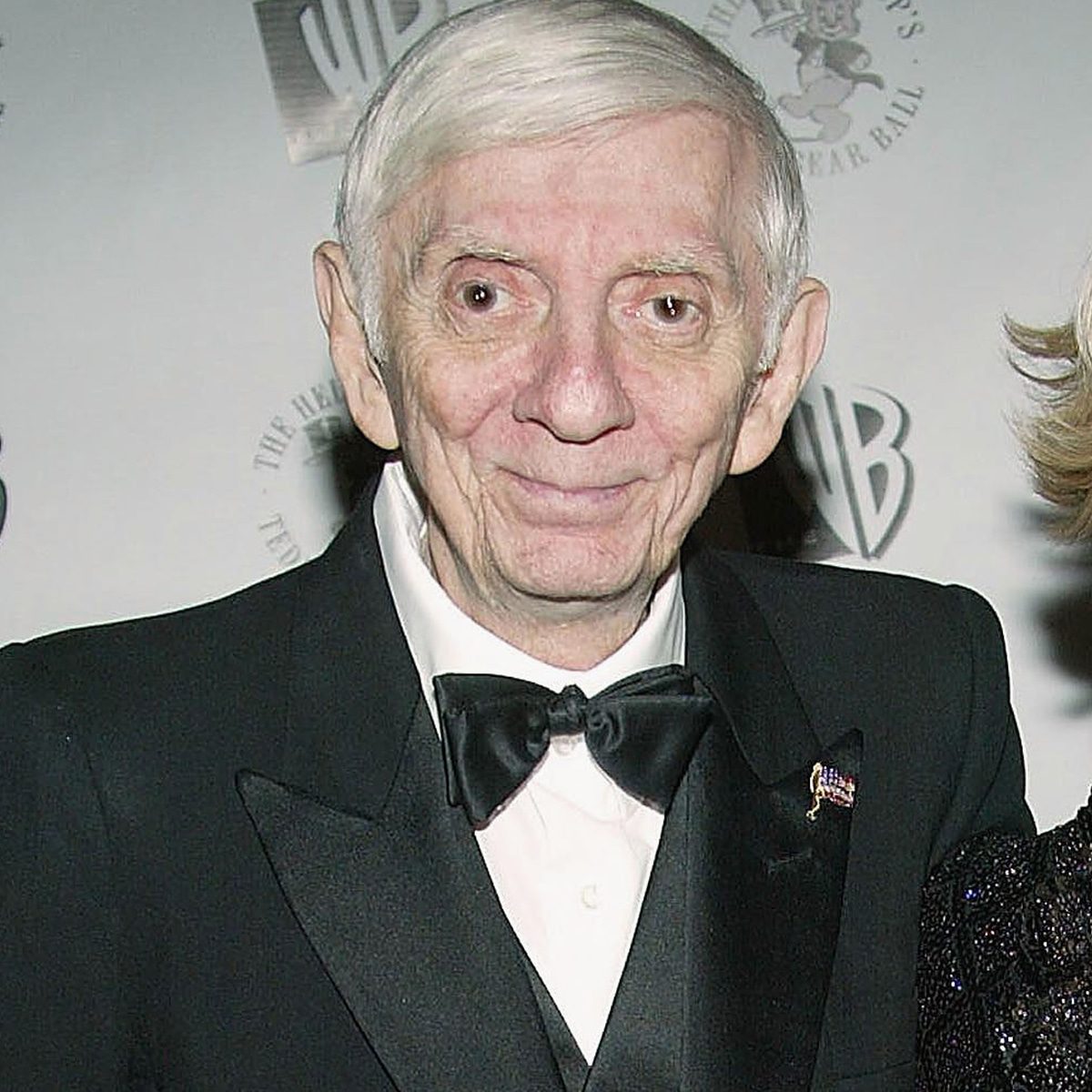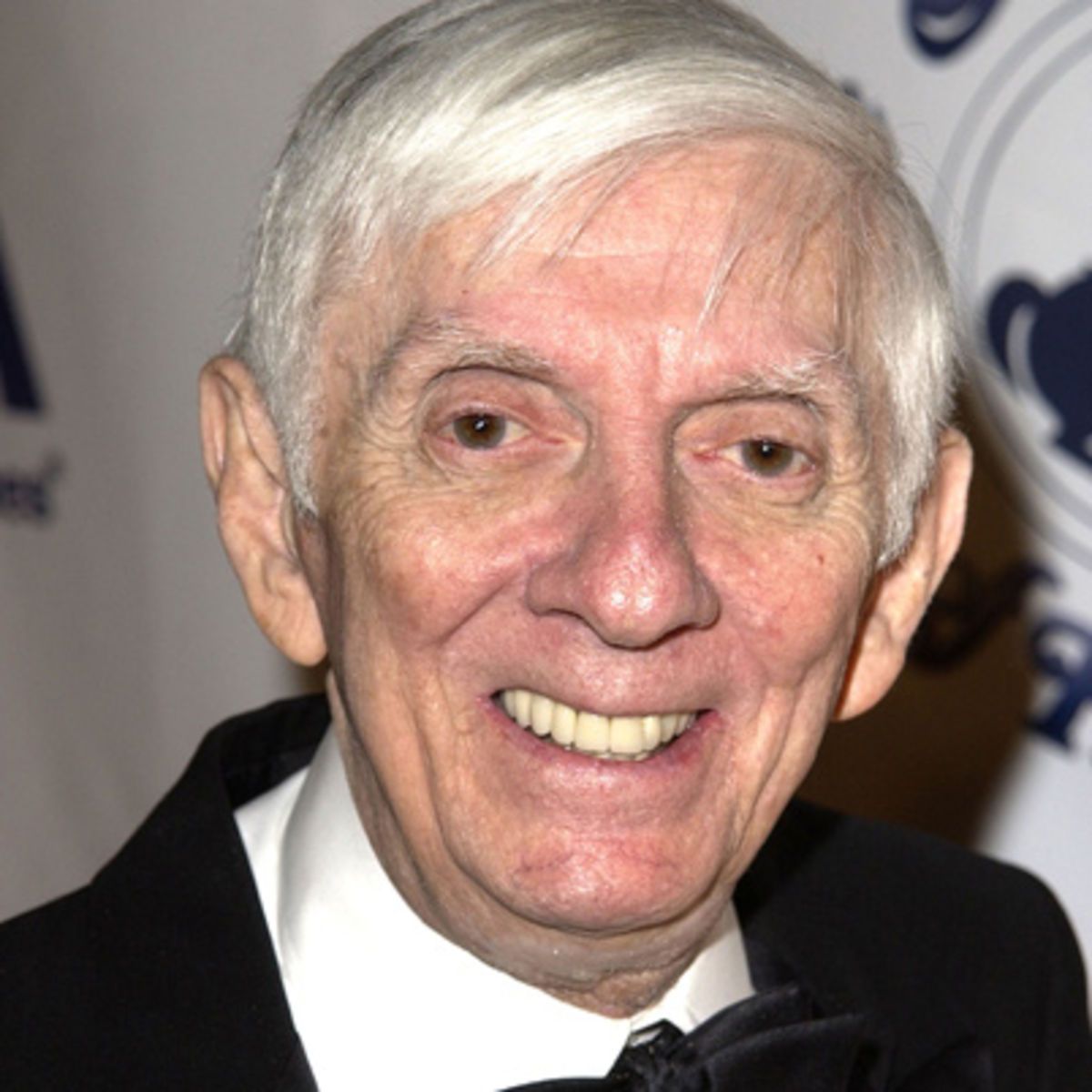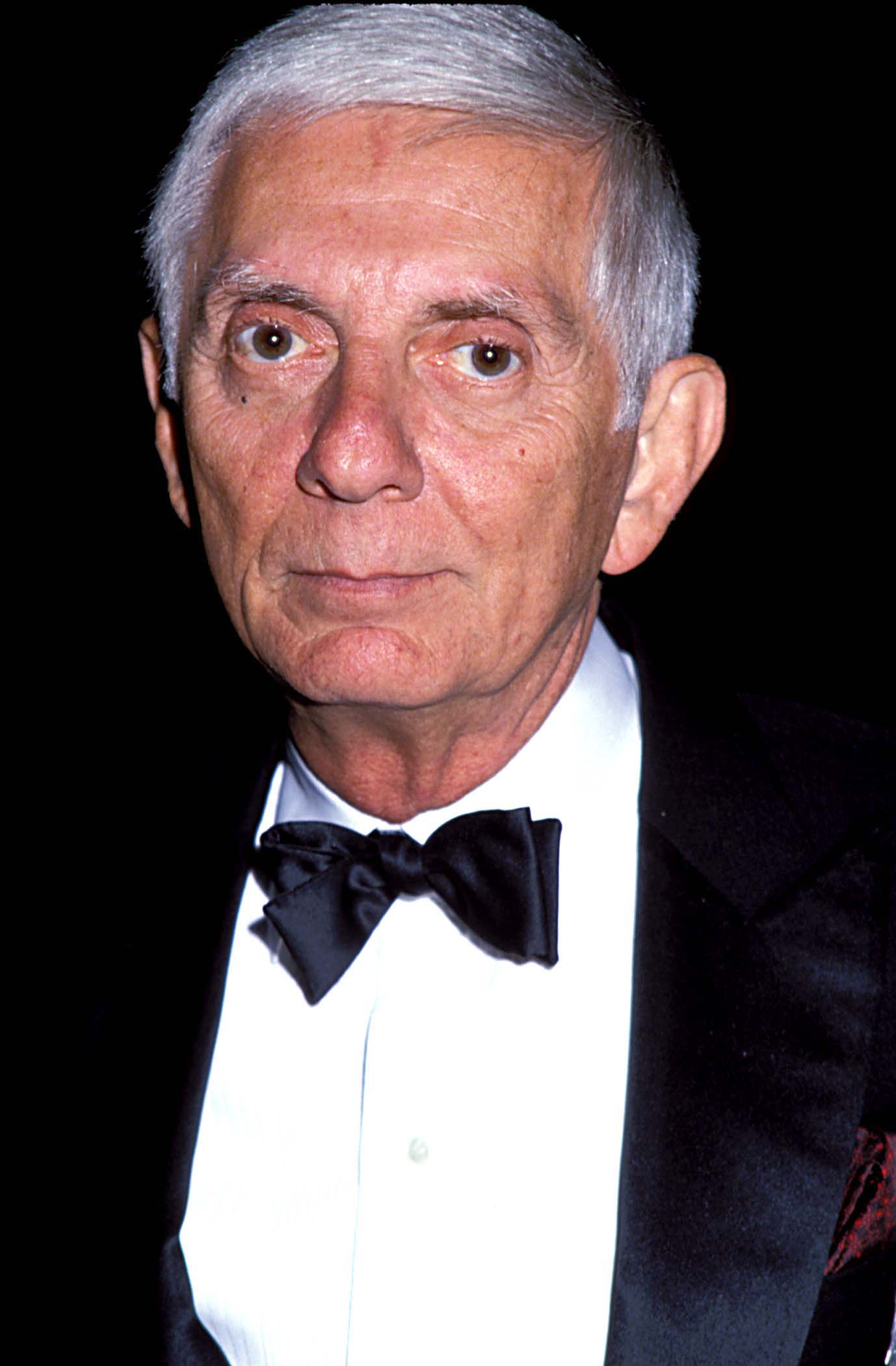Aaron Spelling: The Television Titan Who Defined Generations
When you think of iconic television, the name Aaron Spelling comes up, and for good reason. His influence on the small screen is, you know, absolutely massive, shaping the way millions watched stories unfold for decades. He was a master storyteller, in a way, bringing to life characters and worlds that truly stuck with people, defining entire eras of pop culture.
He had a knack for knowing just what audiences wanted, often before they even knew it themselves. From glamorous prime-time soaps that, like, practically invented the genre, to action-packed dramas and shows that spoke directly to younger viewers, his touch was unmistakable. It's almost as if he had a secret formula for captivating the masses, a formula that, in some respects, still holds up today.
This article looks at the man behind so many memorable series, exploring his beginnings, his rise to power, and the lasting mark he made on entertainment. We will, you know, really dig into the sheer volume and variety of his work, and how his distinct vision, actually, kept millions glued to their sets. It's a story of ambition, creativity, and, well, a whole lot of television.
Table of Contents
- Biography of Aaron Spelling
- Personal Details and Bio Data
- Iconic Productions: A Television Empire
- A Lasting Influence and Family Connections
- Frequently Asked Questions About Aaron Spelling
Biography of Aaron Spelling
Aaron Spelling's journey to becoming a television legend is, you know, quite a tale, starting from humble beginnings and growing into an empire. He wasn't just a producer; he was a true architect of popular culture, someone who, more or less, understood the pulse of the American audience. His career spanned decades, evolving with the times but always keeping that signature flair that made his shows so recognizable.
Early Life and Beginnings
Born in Dallas, Texas, in 1923, Aaron Spelling's early life, you know, certainly didn't hint at the grand scale of his future accomplishments. He was the youngest of five children to Polish-Jewish immigrant parents, and his family, in some respects, faced significant financial struggles. This early experience, arguably, instilled in him a strong work ethic and a drive to create something lasting, something truly his own.
After serving in the United States Army Air Forces during World War II, where he was, actually, awarded the Bronze Star, he attended Southern Methodist University. He then, like, moved to New York City to pursue a career in acting, which, you know, is a pretty common starting point for many in the entertainment world. He had a few small roles, but it quickly became clear that his true calling wasn't in front of the camera, but rather, you know, behind it, crafting the stories themselves.
His move to Los Angeles in the mid-1950s marked a real turning point. He began writing for television, contributing to popular shows of the era. This writing background, very, very much gave him a deep appreciation for narrative and character development, skills that would, you know, serve him incredibly well as a producer. It was during this period that he started to, you know, truly understand the mechanics of making a hit show, picking up invaluable insights that, in a way, would guide his entire career.
The Rise to Power
Aaron Spelling's ascent in Hollywood was, you know, a steady climb, marked by smart decisions and a keen eye for talent. He started producing shows in the 1960s, often collaborating with Danny Thomas, which, you know, gave him a solid foundation in the industry. These early projects, such as "The Mod Squad," showcased his ability to tap into contemporary trends and deliver engaging content that, basically, resonated with a broad audience. He was, in a sense, finding his voice.
He had a knack for identifying concepts that, you know, would really click with viewers. His shows often featured strong, appealing characters and storylines that, you know, blended drama with a touch of escapism. This approach, you know, proved incredibly successful, allowing him to build a reputation as someone who could consistently deliver hits. It was, in a way, a very deliberate cultivation of his brand, focusing on what worked and then, you know, doing it even better.
By the 1970s, Aaron Spelling was, you know, a force to be reckoned with. He launched a string of wildly popular series that, honestly, became household names. Shows like "Charlie's Angels" and "The Love Boat" weren't just TV programs; they were cultural phenomena, setting trends and sparking conversations across the country. He was, in a way, perfecting his formula, understanding that, you know, a mix of glamour, adventure, and relatable human stories was a winning combination.
Spelling Entertainment: A Legacy
The establishment of Spelling Entertainment Inc. solidified Aaron Spelling's position as, you know, one of television's most powerful figures. This company, essentially, became a hit factory, churning out shows that, pretty much, defined prime time for decades. It was a place where creativity met commercial savvy, where big ideas were, you know, given the resources to become massive successes. He built an organization that, in a way, reflected his own drive and vision.
Spelling Entertainment was, you know, responsible for an astonishing number of programs, making it, arguably, one of the most prolific production companies in television history. From the late 1970s through the 1990s, if a show was a major hit, there was a very, very good chance Aaron Spelling's name was attached to it. This volume of work, you know, speaks volumes about his dedication and his team's ability to consistently deliver high-quality, popular content. It was, you know, a well-oiled machine, really.
The company's influence extended beyond just creating shows; it also, you know, helped shape the careers of countless actors, writers, and directors. Many stars got their big break on a Spelling production, and, in fact, the company became a launching pad for many talented individuals. This, you know, is a significant part of his legacy, showing how he not only created entertainment but also, you know, fostered new talent within the industry. It was, in a way, a truly comprehensive approach to television production.
Personal Details and Bio Data
Understanding Aaron Spelling, the person, adds another layer to his incredible professional story. His personal life, while often private, was, you know, certainly intertwined with his career, influencing the types of stories he chose to tell and the people he worked with. It’s interesting, really, to see how the man behind the curtain lived.
| Detail | Information |
|---|---|
| Full Name | Aaron F. Spelling |
| Born | April 22, 1923, Dallas, Texas, U.S. |
| Died | June 23, 2006 (aged 83), Los Angeles, California, U.S. |
| Occupation | Television and Film Producer, Screenwriter |
| Spouse(s) | Carolyn Jones (m. 1953; div. 1964), Candy Marer (m. 1968) |
| Children | Victoria Davey "Tori" Spelling, Randall Dean "Randy" Spelling |
| Years Active | 1954–2006 |
| Notable Works | Charlie's Angels, The Love Boat, Dynasty, Beverly Hills, 90210, Melrose Place, 7th Heaven, Charmed |
| Awards | Emmy Award (numerous nominations and wins), Producers Guild of America Award, Hollywood Walk of Fame star |
Iconic Productions: A Television Empire
Aaron Spelling's impact on television is, you know, truly measured by the sheer number and enduring popularity of his shows. He had a unique ability to, basically, create programs that not only captured the zeitgeist of their time but also, you know, managed to remain relevant for years afterward. His productions were, in a way, like a mainstream spelling of what popular entertainment should be, always hitting the mark.
Genre-Defining Dramas
When you talk about Aaron Spelling, you have to, you know, immediately think of the dramas that reshaped prime time. Shows like "Charlie's Angels," for example, were groundbreaking, presenting strong, independent female characters in a way that, you know, truly resonated with audiences. It wasn't just about the action; it was about the glamour, the mystery, and the appeal of these dynamic women. That show, in a way, set a new standard.
"Dynasty" is another, you know, perfect example of his genius in this area. It was a lavish, over-the-top soap opera that, honestly, became a cultural phenomenon, captivating viewers with its tales of wealth, power, and family feuds. The fashion, the drama, the cliffhangers – it was all, you know, meticulously crafted to keep people coming back for more. It showed that, you know, audiences loved a good, juicy story, especially when it involved high stakes and glamorous settings.
And then there's "The Love Boat," which, you know, was a completely different kind of drama, blending comedy with heartwarming stories set on a cruise ship. It was, in a way, a feel-good show that, very, very much became a Sunday night ritual for many families. These shows, you know, weren't just entertainment; they were cultural touchstones, reflecting and shaping the aspirations of a generation. He knew how to make something that, you know, felt both grand and accessible.
Youth-Centric Hits
As the television landscape changed, Aaron Spelling, you know, proved he could adapt, turning his attention to younger audiences with incredible success. "Beverly Hills, 90210" is, arguably, the most famous example of this shift. It was a show that, honestly, spoke directly to teenagers and young adults, exploring themes of friendship, love, and growing up in a way that felt, you know, very authentic and relatable. It became, in a way, a defining show for a generation.
Following that success, he created "Melrose Place," which, you know, took the drama up a notch, focusing on the lives of young adults living in an apartment complex. This show, in some respects, pushed boundaries, delving into more mature themes and creating complex, often scandalous, storylines. It showed that, you know, he wasn't afraid to evolve and explore new territory, keeping his finger on the pulse of what younger viewers found compelling. It was, you know, a bit edgier, a bit more intense.
Later on, "7th Heaven" and "Charmed" continued his legacy of appealing to different segments of the youth market. "7th Heaven," you know, offered a more wholesome, family-oriented perspective, while "Charmed" brought a magical, supernatural element to his portfolio. These shows, you know, demonstrated his versatility and his ongoing commitment to producing content that resonated across various demographics, proving that, you know, he could always find a new audience to captivate.
Behind the Scenes: His Production Style
Aaron Spelling's production style was, you know, very distinct, characterized by a commitment to high production values and a focus on strong, often glamorous, visuals. He understood that television was, in a way, a visual medium, and he spared no expense in making his shows look, you know, absolutely fantastic. This attention to detail, honestly, set his productions apart from many others of the era.
He was known for giving his writers and directors a good deal of creative freedom, but he also, you know, had a clear vision for each project. He was a hands-on producer, involved in everything from casting to story development, ensuring that each show, you know, met his high standards. This level of involvement, in a way, helped maintain a consistent quality across his vast output, which, you know, is pretty impressive when you consider the sheer volume.
Another hallmark of his style was, you know, his ability to spot and nurture new talent. Many actors who became household names got their start on a Spelling show. He had a reputation for being, you know, very loyal to his team, creating a collaborative environment where people could, you know, truly thrive. This approach, you know, contributed to the longevity and success of his company, fostering a sense of shared purpose and dedication.
A Lasting Influence and Family Connections
Aaron Spelling's passing in 2006 marked the end of an era, but his influence, you know, certainly continues to shape the television landscape. His body of work is a testament to his vision and his relentless pursuit of popular entertainment. It's, you know, truly amazing how many of his shows are still discussed, rewatched, and, in some cases, even rebooted today.
Enduring Impact on Television
The legacy of Aaron Spelling is, you know, clearly visible in today's television programming. Many current shows, in a way, owe a debt to his pioneering efforts in serialized drama, character-driven narratives, and the art of the cliffhanger. He understood that, you know, audiences wanted to invest in characters over time, to follow their journeys and see how their stories unfolded week after week. This approach, you know, is still very much alive in modern television.
His shows also, you know, often tackled social issues, albeit sometimes subtly, within their glamorous frameworks. "Beverly Hills, 90210," for example, addressed topics like drug abuse, eating disorders, and sexual identity, bringing these conversations to a mainstream audience. This willingness to, you know, explore relevant themes, even in seemingly lighthearted shows, is a significant part of his enduring impact. It showed that, you know, entertainment could also spark important discussions.
Furthermore, the "Aaron Spelling" brand, you know, became synonymous with a certain kind of escapist, high-stakes, and visually appealing television. Even now, when people talk about "Spelling-esque" shows, they know exactly what that means. It's a testament to how, you know, profoundly he shaped the expectations and tastes of television viewers for generations. You can, you know, still feel his presence in the industry.
Family Ties and Continuing the Name
The name Aaron, for a boy, carries a distinct identity, and Aaron Spelling, you know, certainly gave that name a powerful association in Hollywood. His children, Tori Spelling and Randy Spelling, have, in a way, continued his legacy in the entertainment industry. Tori, especially, became a household name through her role on "Beverly Hills, 90210," a show produced by her father. It's a pretty unique situation, you know, to work so closely with your parent on such a massive project.
His family, you know, carries on his name and, in some respects, his creative spirit. Middle names are often surnames or honorifics, so the gender doesn't really matter when thinking about honoring someone. In this case, the name Aaron, and the Spelling surname, are, you know, very much tied to a legacy of groundbreaking television. It's a way that his influence, you know, continues to resonate through his family's ongoing involvement in entertainment.
The Spelling family, you know, remains a recognizable part of the Hollywood fabric, a constant reminder of the man who built an empire from scratch. If you want to honor an Aaron, giving the name Aaron is a direct way, and in a broader sense, his family's continued work in the industry, you know, serves as a living tribute to his immense contributions. It's, you know, a powerful continuation of his story.
Learn more about television history on our site, and link to this page for more insights into iconic producers.
Frequently Asked Questions About Aaron Spelling
People often have questions about Aaron Spelling's life and work, and it's, you know, pretty common to wonder about the details of such a prolific career. Here are some of the things people often ask.
What were Aaron Spelling's most famous shows?
Aaron Spelling produced an incredible number of famous shows, but some of his absolute biggest hits include, you know, "Charlie's Angels," "The Love Boat," "Dynasty," "Beverly Hills, 90210," and "Melrose Place." These shows, in a way, really defined their respective eras and are, you know, still widely recognized today.
How many shows did Aaron Spelling produce?
It's, you know, hard to give an exact number because his career was so long and prolific, but Aaron Spelling is credited with producing over 200 television series and films. This makes him, arguably, one of the most successful and productive producers in television history. It's, you know, a truly astonishing volume of work.
What was Aaron Spelling's net worth?
At the time of his passing, Aaron Spelling's net worth was, you know, estimated to be around $300 million to $600 million, largely due to his extensive and highly successful career in television production. His empire, you know, generated vast sums over the decades, making him one of Hollywood's wealthiest figures. You can find more details about his estate on sites like IMDb, for example.

Aaron Spelling - Hollywood Walk of Fame

Pictures of Aaron Spelling

Aaron Spelling - Golden Globes